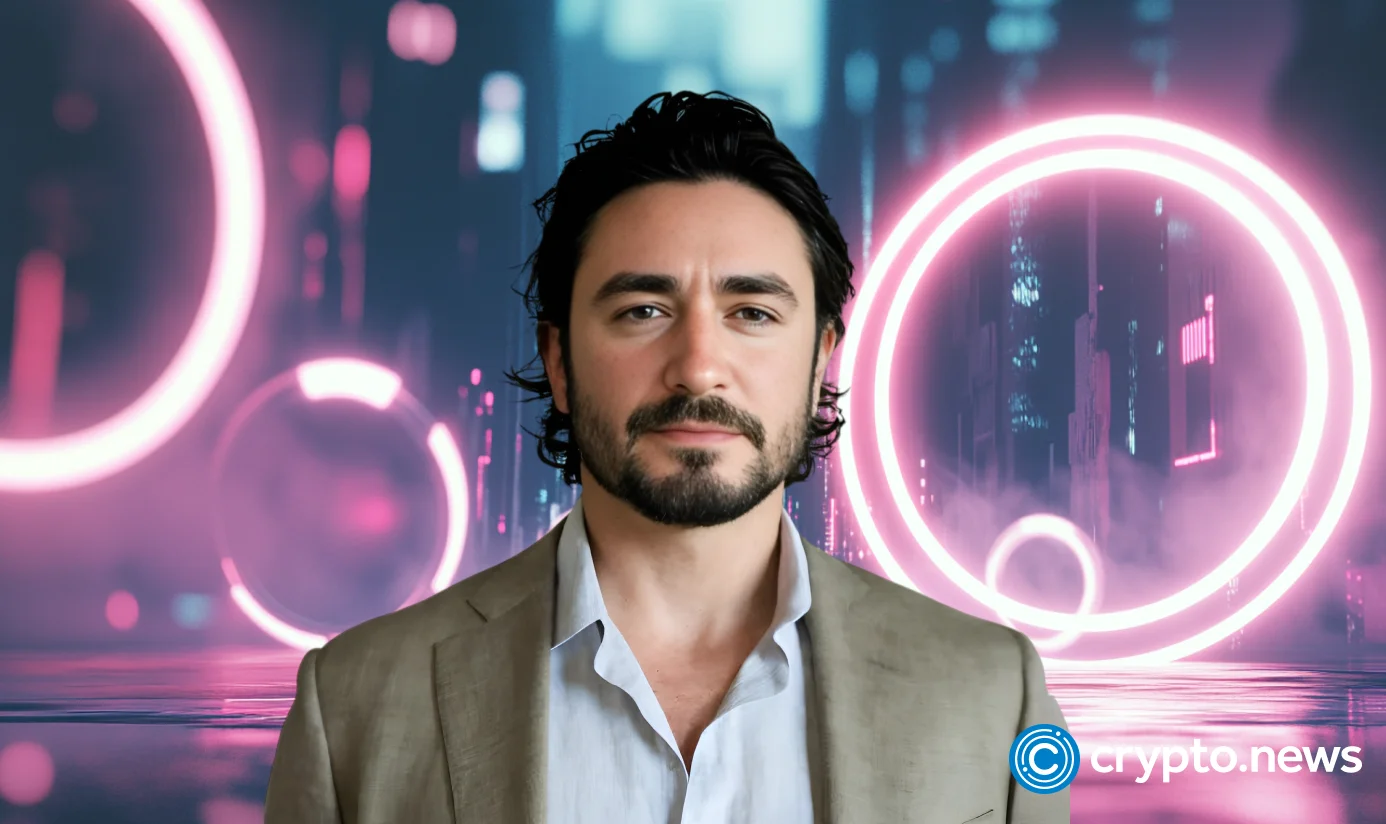US Congressman Khanna Proposes Ban on Presidential Bitcoin Ownership and Cryptocurrency Creation by Elected Officials
US Congressman Ro Khanna has announced plans to introduce legislation that would prohibit the President, presidential family members, and all elected officials from owning Bitcoin or creating cryptocurrencies. This proposal represents one of the most restrictive cryptocurrency regulations targeting government officials proposed in the United States to date.
The Proposed Legislation
Congressman Khanna's bill aims to establish clear ethical boundaries regarding cryptocurrency ownership and creation among the nation's highest-ranking public servants. The legislation would specifically target three groups: the sitting President, immediate family members of the President, and all federally elected officials including members of Congress and the Senate.
The prohibition encompasses two main restrictions: a complete ban on owning Bitcoin and other cryptocurrencies, and a prohibition on creating, launching, or being involved in the development of any cryptocurrency projects. The proposed law seeks to eliminate potential conflicts of interest that could arise from elected officials holding or promoting digital assets while simultaneously regulating the cryptocurrency industry.
Political Motivation and Context
The introduction of this bill comes amid growing concerns about conflicts of interest in government cryptocurrency policy. Recent political developments have heightened scrutiny of elected officials' financial interests in digital assets, particularly as cryptocurrency regulation becomes an increasingly partisan issue in Washington.
Congressman Khanna, a Democrat representing California's 17th congressional district in Silicon Valley, has positioned himself as a technology-friendly legislator while maintaining strong ethical standards for public servants. His district includes major technology companies and innovation hubs, giving him unique insight into both the promise and risks of emerging technologies like cryptocurrency.
The timing of this proposal is significant. As cryptocurrency continues gaining mainstream adoption and several nations explore Bitcoin reserves, questions about government officials' personal financial interests in these assets have intensified. The bill addresses concerns that elected officials might make policy decisions influenced by personal cryptocurrency holdings rather than public interest.
Scope and Implications
The proposed legislation would create sweeping restrictions unprecedented in US cryptocurrency regulation. For the President, the ban would extend to immediate family members, potentially including spouses, children, and other relatives living in the White House. This reflects similar restrictions that exist for other financial conflicts of interest.
For elected officials, the prohibition would apply throughout their terms in office. Questions remain about whether officials would need to divest existing cryptocurrency holdings before taking office or whether a blind trust arrangement might be permitted. The bill's specific implementation details will be crucial in determining its practical impact.
The restriction on creating cryptocurrencies is particularly noteworthy. It would prevent elected officials from launching tokens, participating in cryptocurrency startups, or lending their names to digital asset projects. This provision appears designed to prevent scenarios where officials might use their public position to promote personal cryptocurrency ventures.
Support and Opposition
The bill is likely to face significant opposition from cryptocurrency advocates and free-market conservatives who view such restrictions as government overreach. Critics argue that blanket prohibitions on asset ownership by elected officials create unreasonable barriers to public service and unfairly single out cryptocurrency compared to other investments.
Supporters, however, contend that the unique characteristics of cryptocurrency make special restrictions necessary. Unlike stocks or bonds, cryptocurrencies can be easily created, promoted through social media, and are subject to extreme price volatility influenced by public statements from influential figures. The potential for conflicts of interest is therefore heightened.
The proposal may find support among progressive Democrats concerned about wealth inequality and corruption, as well as some cryptocurrency skeptics who view digital assets as speculative and potentially harmful. However, bipartisan support would be necessary for passage, and the bill's prospects remain uncertain.
Comparison to Existing Ethics Rules
Current ethics rules for federal officials include various restrictions on financial conflicts of interest, but cryptocurrency ownership currently faces fewer specific limitations than traditional securities. The STOCK Act of 2012 addresses insider trading by members of Congress, requiring disclosure of securities transactions including some cryptocurrency holdings.
However, existing rules do not completely prohibit elected officials from owning cryptocurrencies. Many members of Congress have disclosed cryptocurrency holdings in their financial disclosure forms, demonstrating that current law permits such ownership subject to disclosure requirements.
Khanna's proposal would go significantly further than existing ethics rules by establishing an outright ban. This represents a more restrictive approach than regulations governing other asset classes, where disclosure and recusal from relevant policy decisions are typically considered sufficient safeguards.
International Precedents
Few countries have implemented complete bans on cryptocurrency ownership by elected officials. Most nations rely on disclosure requirements and conflict-of-interest recusal processes similar to those governing other financial assets. Some countries with authoritarian governments have banned cryptocurrency broadly, but democratic nations generally permit ownership subject to transparency requirements.
The proposed US legislation would be among the most restrictive in democratic nations if enacted. This could position the United States as a leader in government cryptocurrency ethics regulation, potentially influencing other countries to consider similar measures.
Industry Reaction
The cryptocurrency industry's response to such legislation would likely be mixed. Some industry leaders might welcome clear ethical boundaries that could enhance public trust in cryptocurrency regulation. If the public perceives that officials regulating cryptocurrency have no personal financial stake in the industry, confidence in regulatory decisions might increase.
However, many cryptocurrency advocates view government restrictions on digital asset ownership as fundamentally contrary to cryptocurrency's decentralized philosophy. The industry might oppose the legislation as an attack on financial freedom and an attempt to marginalize cryptocurrency compared to traditional assets.
The bill could also impact government recruitment. If potential candidates for elected office must completely divest from cryptocurrency holdings, individuals deeply involved in the digital asset industry might be discouraged from pursuing public service.
Constitutional and Legal Questions
The proposed legislation may face legal challenges on constitutional grounds. Restrictions on elected officials' property ownership rights could be challenged as violating due process or equal protection principles. Courts would need to balance government ethics interests against individual liberty rights.
Precedent exists for restrictions on government officials' financial activities. Federal employees face various limitations on outside income and investments to prevent conflicts of interest. However, elected officials generally face fewer restrictions than appointed officials, as voters are considered capable of judging whether candidates' financial interests create disqualifying conflicts.
The distinction between elected and appointed officials could be significant. While Congress has broad authority to regulate executive branch employees, restrictions on elected officials' personal finances might face stricter constitutional scrutiny.
Implementation Challenges
If enacted, the legislation would face numerous implementation challenges. Defining what constitutes "ownership" of cryptocurrency could be complex given the technology's decentralized nature. Would indirect ownership through funds or trusts be prohibited? How would the law address cryptocurrency received as gifts or inheritance?
Enforcement mechanisms would also require careful design. Unlike publicly traded securities, cryptocurrency holdings can be maintained anonymously or pseudonymously. Ensuring compliance would require robust disclosure systems and potentially new investigative authorities for ethics offices.
The restriction on creating cryptocurrencies raises additional questions. Would officials be prohibited from any involvement in blockchain projects, even open-source development? How would the law distinguish between legitimate technology development and prohibited cryptocurrency creation?
Future Outlook
The bill's prospects for passage remain uncertain. In a divided Congress, cryptocurrency regulation has become increasingly partisan. Republicans generally favor lighter regulation and free-market approaches, while Democrats increasingly support consumer protection measures and restrictions on speculative assets.
For the legislation to advance, Khanna would need to build a coalition of supporters across ideological lines. Framing the bill as an anti-corruption measure focused on government ethics rather than cryptocurrency regulation per se might broaden its appeal.
Even if the current bill does not pass, it may influence future cryptocurrency ethics debates. The proposal establishes a benchmark for discussions about appropriate restrictions on elected officials' digital asset holdings and could prompt other legislators to introduce alternative approaches.
Broader Implications for Cryptocurrency Policy
Beyond its immediate provisions, the proposed legislation signals broader tensions in US cryptocurrency policy. As digital assets move from the periphery to the mainstream of financial markets, questions about government officials' relationships with the industry intensify.
The bill reflects a view that cryptocurrency's unique characteristics—decentralization, volatility, ease of creation, and influence by public statements—create conflict-of-interest risks different from traditional assets. This perspective may inform other regulatory approaches as cryptocurrency continues evolving.
If enacted, the legislation could also impact how other cryptocurrency regulations develop. Officials prohibited from owning digital assets might approach policy questions differently than those with personal investments in the industry. Whether this would lead to more restrictive or more balanced regulation remains debatable.
Conclusion
Congressman Khanna's proposed legislation to ban Presidential, Presidential family, and elected officials' Bitcoin ownership and cryptocurrency creation represents a significant development in US cryptocurrency policy. While the bill faces uncertain prospects for passage and raises numerous implementation questions, it catalyzes important discussions about government ethics in the digital asset age.
The proposal reflects growing recognition that cryptocurrency's mainstream adoption necessitates clearer ethical boundaries for public officials. Whether through this specific legislation or alternative approaches, the question of elected officials' cryptocurrency interests will likely remain prominent in policy debates as digital assets continue reshaping financial markets.
For cryptocurrency advocates, the bill may seem like government overreach. For ethics reformers, it represents necessary safeguards against conflicts of interest. As with many cryptocurrency policy questions, the debate ultimately reflects broader tensions between innovation and regulation, individual liberty and public accountability.
You May Also Like

Unprecedented Surge: Gold Price Hits Astounding New Record High

Interview | Big tech is training AI on junk data: Intuition
